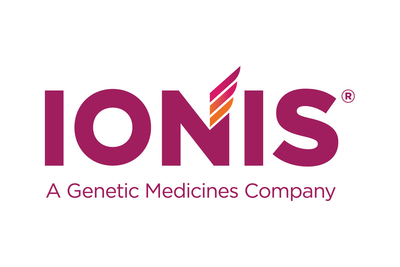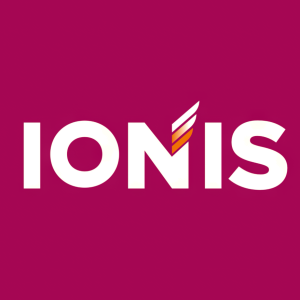FDA approves QALSODY™ (tofersen) as the first treatment targeting a genetic cause of ALS
Rhea-AI Summary
Ionis Pharmaceuticals has announced that its partner Biogen received FDA approval for QALSODY (tofersen) as the first treatment targeting a genetic cause of amyotrophic lateral sclerosis (ALS)SOD1 gene mutation. This accelerated approval is based on a significant reduction of the neurofilament light chain, a biomarker linked to neuronal damage in ALS patients treated with QALSODY. The drug is administered via injection and aims to address the severe impact of SOD1 mutations, with ongoing trials to confirm clinical benefits. Notably, QALSODY joins another Ionis-developed drug, SPINRAZA, in tackling rare neurodegenerative diseases. However, approval is contingent on further demonstration of clinical efficacy from ongoing studies.
Positive
- QALSODY is the first approved treatment specifically targeting the genetic cause of SOD1-ALS.
- Significant reduction in plasma neurofilament light chain observed in patients treated with QALSODY, indicative of potential clinical benefit.
- QALSODY joins SPINRAZA as Ionis-discovered medicines approved for rare neurodegenerative diseases.
Negative
- Continued approval of QALSODY is contingent upon verification of clinical benefits from ongoing trials, introducing uncertainty.
- Warnings about serious neurological events associated with QALSODY treatment, including myelitis and elevated intracranial pressure.
News Market Reaction 1 Alert
On the day this news was published, IONS declined 0.36%, reflecting a mild negative market reaction.
Data tracked by StockTitan Argus on the day of publication.
- Accelerated approval marks a scientific advancement in treatment of superoxide dismutase 1 (SOD1)-amyotrophic lateral sclerosis (ALS)
- Approval based on reduction of neurofilament, a biomarker associated with neuronal damage in ALS
- QALSODY joins SPINRAZA® as Ionis-discovered medicine approved for treatment of a rare and fatal neurodegenerative disease
Neurofilaments are proteins that are released from neurons when they are damaged, making them a marker of neurodegeneration.
"Today's approval of QALSODY represents a scientific advancement for the ALS community. We thank the people with SOD1-ALS whose participation in the clinical studies made this day possible. We are proud of the Ionis scientists whose dedication made the discovery of this medicine possible, and we are appreciative of our partners at Biogen for their ongoing commitment to ALS," said
Warnings and precautions associated with QALSODY were serious neurologic events, including myelitis and or radiculitis; papilledema and elevated intracranial pressure; and aseptic meningitis. If symptoms consistent with myelitis, radiculitis papilledema, elevated intracranial, or aseptic meningitis develop, diagnostic workup and treatment should be initiated according to the standard of care. Management may require interruption or discontinuation of QALSODY. The most common adverse reactions that occurred in ≥
The efficacy of QALSODY was assessed in a 28-week randomized, double-blind, placebo-controlled clinical study in patients 23 to 78 years of age with weakness attributable to ALS and a SOD1 mutation confirmed by a central laboratory. One hundred eight (108) patients were randomized 2:1 to receive treatment with either QALSODY 100 mg (n=72) or placebo (n=36) for 24 weeks (3 loading doses followed by 5 maintenance doses). Concomitant riluzole and/or edaravone use was permitted for patients and at baseline
Over 28 weeks in VALOR, participants in the primary analysis population (n=60) treated with QALSODY experienced less decline from baseline as measured by the Revised Amyotrophic Lateral Sclerosis Functional Rating Scale (ALSFRS-R) compared to placebo, though the results were not statistically significant (QALSODY-placebo adjusted mean difference [
At an interim analysis at 52 weeks of participants who had completed VALOR and enrolled in an open-label extension (OLE) study, reductions in NfL were seen in participants previously receiving placebo and who initiated QALSODY in the OLE, similar to the reductions seen in participants treated with QALSODY in VALOR. Earlier initiation of QALSODY compared to placebo/delayed-start of QALSODY was associated with trends for reduction in decline on measures of clinical function (ALSFRS-R), respiratory strength (slow vital capacity percent-predicted), and muscle strength (hand-held dynamometry megascore), though they were not statistically significant. QALSODY was also associated with a non-statistically significant trend towards reduction of the risk of death or permanent ventilation. These exploratory analyses should be interpreted with caution given the limitations of data collected outside of controlled study, which may be subject to confounding.
The approval of QALSODY was supported by 12-month integrated results from VALOR and its OLE comparing earlier initiation of tofersen (at the start of VALOR) to delayed initiation of tofersen (six months later, in the OLE), that were published in
What is QALSODY?
QALSODY™ (tofersen) is a prescription medicine used to treat adults with amyotrophic lateral sclerosis (ALS) associated with a mutation in the superoxide dismutase 1 (SOD1) gene. This indication is approved under accelerated approval based on reduction in plasma neurofilament light chain (NfL) observed in patients treated with QALSODY. Continued approval for this indication may be contingent upon verification of clinical benefit in confirmatory trial(s).
IMPORTANT SAFETY INFORMATION
What is the most important information that I should know about QALSODY?
QALSODY can cause serious side effects, including:
Inflammation of the spinal cord (myelitis) and/ or irritation of the nerve roots (radiculitis), including serious cases, have been reported in patients treated with QALSODY. Contact your healthcare provider to learn more about symptoms associated with myelitis or radiculitis, and/ or if you believe you are experiencing either of these conditions. QALSODY may need to be interrupted or discontinued.
Swelling of the optic nerve (papilledema) and increased pressure inside the skull (elevated intracranial pressure), including serious cases, have been reported in patients treated with QALSODY. Contact your healthcare provider to learn more about symptoms associated with papilledema or elevated intracranial pressure, and/ or if you believe you are experiencing either of these conditions.
Inflammation of the brain linings (aseptic meningitis), including serious cases, have been reported in patients treated with QALSODY. Contact your healthcare provider to learn more about symptoms associated with aseptic meningitis, and/ or if you believe you are experiencing this condition.
What should I tell my HCP before I start using QALSODY?
Before taking QALSODY, tell your healthcare provider if you are pregnant, plan to become pregnant, or are breastfeeding or plan to breastfeed.
What are the possible side effects of QALSODY?
The most common adverse reactions reported in patients treated with QALSODY were pain (back pain, pain in arms or legs), feeling tired, muscle and joint pain and increased white blood cell count in the cerebrospinal fluid (CSF).
This information is not intended to replace discussions with your healthcare provider.
These are not all the possible side effects of QALSODY. Please talk to your healthcare provider if you experience any of these symptoms, or other new symptoms that concern you.
Call your doctor for medical advice about side effects. You may report side effects to FDA at 1-800-FDA-1088.
Please see full Prescribing Information.
For more details on QALSODY, visit www.QALSODY.com.
About QALSODY™ (tofersen)
QALSODY is an antisense oligonucleotide (ASO) designed to bind to SOD1 mRNA to reduce SOD1 protein production. QALSODY is indicated for the treatment of ALS in adults who have a mutation in the SOD1 gene in the
Biogen licensed tofersen from Ionis under a collaborative development and license agreement.
In addition to the ongoing OLE of VALOR, QALSODY is being studied in the Phase 3, randomized, placebo-controlled ATLAS study to evaluate whether QALSODY can delay clinical onset when initiated in presymptomatic individuals with a SOD1 genetic mutation and biomarker evidence of disease activity (elevated plasma NfL). The primary efficacy endpoint is the proportion of participants with emergence of clinically manifest ALS. ATLAS is currently more than 50 percent enrolled with clinical trial sites in 14 countries worldwide with an estimated primary completion date in 2026. More details about ATLAS (NCT04856982) can be found at clinicaltrials.gov.
About Amyotrophic Lateral Sclerosis and SOD1-ALS
Amyotrophic lateral sclerosis (ALS) is a rare, progressive and fatal neurodegenerative disease that results in the loss of motor neurons in the brain and the spinal cord that are responsible for controlling voluntary muscle movement. People with ALS experience muscle weakness and atrophy, causing them to lose independence as they steadily lose the ability to move, speak, eat, and eventually breathe. Average life expectancy for people with ALS is three to five years from time of symptom onset.
Multiple genes have been implicated in ALS. Genetic testing helps determine if a person's ALS is associated with a genetic mutation, even in individuals without a known family history of the disease. Currently, there are no genetically targeted treatment options for ALS. SOD1-ALS is diagnosed in approximately
About Ionis' Neurology Franchise
Ionis' neurology franchise addresses all major brain regions and central nervous system cell types and currently has three Phase 3 studies ongoing with 12 therapies in clinical development, several of which Ionis plans to commercialize directly. Ionis is discovering and developing potential treatments for many neurological diseases for which there are few or no disease modifying treatments, including common diseases like Alzheimer's and Parkinson's as well as rare diseases such as amyotrophic lateral sclerosis (ALS) and Alexander disease. Ionis has discovered and developed three commercially available neurological disease medicines, including the first approved treatment for spinal muscular atrophy, a medicine to treat hereditary transthyretin-mediated amyloid polyneuropathy (ATTRv-PN), and now QALSOLDY for SOD1-ALS.
About Ionis Pharmaceuticals, Inc.
For more than 30 years, Ionis has been a leader in RNA-targeted therapy, pioneering new markets and changing standards of care with its novel antisense technology. Ionis currently has three marketed medicines and a promising late-stage pipeline highlighted by cardiovascular and neurological franchises. Our scientific innovation began and continues with the knowledge that sick people depend on us, which fuels our vision to become the leader in genetic medicine, utilizing a multi-platform approach to discover, develop and deliver life-transforming therapies.
To learn more about Ionis visit www.ionispharma.com and follow us on Twitter @ionispharma.
Ionis' Forward-looking Statement
This press release includes forward-looking statements regarding Ionis' business and the therapeutic and commercial potential of QALSODY (tofersen), Ionis' technologies and Ionis' other products in development. Any statement describing Ionis' goals, expectations, financial or other projections, intentions or beliefs is a forward-looking statement and should be considered an at-risk statement. Such statements are subject to certain risks and uncertainties including those inherent in the process of discovering, developing and commercializing medicines that are safe and effective for use as human therapeutics, and in the endeavor of building a business around such medicines. Ionis' forward-looking statements also involve assumptions that, if they never materialize or prove correct, could cause its results to differ materially from those expressed or implied by such forward-looking statements. Although Ionis' forward-looking statements reflect the good faith judgment of its management, these statements are based only on facts and factors currently known by Ionis. As a result, you are cautioned not to rely on these forward-looking statements. These and other risks concerning Ionis' programs are described in additional detail in Ionis' annual report on Form 10-K for the year ended
In this press release, unless the context requires otherwise, "Ionis," "Company," "we," "our" and "us" all refer to
![]() View original content to download multimedia:https://www.prnewswire.com/news-releases/fda-approves-qalsody-tofersen-as-the-first-treatment-targeting-a-genetic-cause-of-als-301807576.html
View original content to download multimedia:https://www.prnewswire.com/news-releases/fda-approves-qalsody-tofersen-as-the-first-treatment-targeting-a-genetic-cause-of-als-301807576.html
SOURCE








